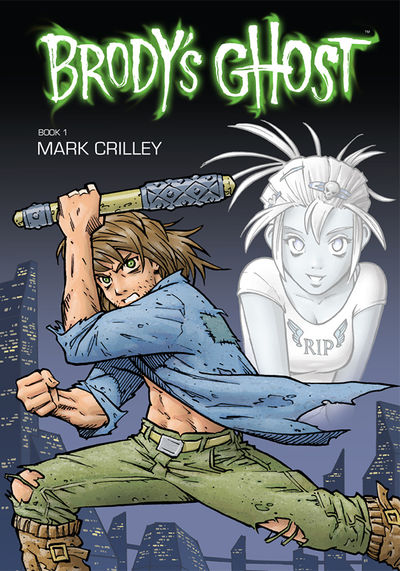 “You’re a made man now, Mark.”
These are the words Robb Horan of Sirius Entertainment, publisher of my Akiko comic-book series, said to me somewhere around 1998. The occasion was Random House Children’s Books having offered me a deal to create a series of Akikoyoung-reader novels, books that would be made available in stores like Borders and Barnes and Noble.
“You’re a made man now, Mark.”
These are the words Robb Horan of Sirius Entertainment, publisher of my Akiko comic-book series, said to me somewhere around 1998. The occasion was Random House Children’s Books having offered me a deal to create a series of Akikoyoung-reader novels, books that would be made available in stores like Borders and Barnes and Noble.It wasn’t just a matter of moving up in the world, it felt almost like someone was saving my life. At the time, any comics insider who remembers the late ’90s will back me up when I say it was a very precarious time for the industry. Comic shops were closing, comics publishers were going bust, and to some extent it seemed comics readers themselves were a dying breed: aging collectors that dearly wanted a new generation of young readers to come along and carry the torch, but hadn’t a clue how to make that happen. I’d only joined the industry in 1995, and it was beginning to look like I’d climbed aboard a sinking ship.
So here was Random House, the biggest book publisher in America, offering me a nice, cushy life raft. You couldn’t blame me for feeling like I was one of the lucky ones, getting a chance to start all over again with a bigger, more seaworthy vessel.
Well, a funny thing happened once we got out to sea. Kids started reading comics again. Somewhere around 2004, when I was coming up with a new series of books—the soon-to-be-670-page monster called Miki Falls—my agent told me: “Make it a graphic-novel series, Mark. All the publishers are really hot for graphic novels now.” You can imagine my double take. Comics? You want comics? That, I can do!
So here I am a few years later working on Brody’s Ghost for Dark Horse, and let me tell you, I’m psyched. Sure, I’ve worked with bookstore heavyweights like HarperCollins and Little, Brown. But the fan boy in me is geeking out over the fact that I’ll soon be sharing a publisher with the likes of Mike Mignola and Stan Sakai. My Brody editor, Dave Land, works with comics luminaries like Jerry Robinson and Tony Millionaire on a daily basis. And a while back they had him overseeing their series based on a little movie called Star Wars. So yeah, I’m going to be as excited as I’ve ever been about seeing that little horse emblem on my book.
But I’m not here to simply recount the weird luck of my full-circle career path. What I really want to get at is this: I’m one of the few people who has done both comics for the comics industry and prose fiction for mainstream publishing, and as such I’ve been able to compare the readerships from both industries at very close range. As you would expect, they’re different. Very different.
So which readers are more passionate about the books they’re into? Which readers make a greater effort to contact the writers and artists directly and give them detailed feedback? Which readers stick with their favorite creators decade after decade, and aren’t just into it for a few years before “growing out of it” and moving on to something else?
Comics readers. There’s no comparison.
Now, don’t get me wrong: I’m proud of the dozen or so young-reader novels I’ve written and hope to continue doing such books for many years to come. But as a rule, kids who read chapter books don’t write the author to say, “I liked what you did in chapter 17. That dialogue on page 184 was some of your best.”
Comics readers do this. They do it all the time. Heck, these people will quote your own lines back to you more accurately than you can.
There’s no way around it. Comics readers just care more deeply than their mainstream-book-reading counterparts. Think about it: Conventions. There are no mainstream book conventions at which readers arrive dressed up as Greg Heffley from Diary of a Wimpy Kid. Those books sell more in a single print run than most comics could ever hope to during the entire lives of their creators. But where’s the passion? Where are the readers that live and breathe these books? That pore over every panel and get together to argue over the wisdom of every plot turn? Where are the readers who truly can’t imagine life without their favorite titles?
Take it from a guy who’s seen it on both sides: They’re in the comics section.
- Mark Crilley